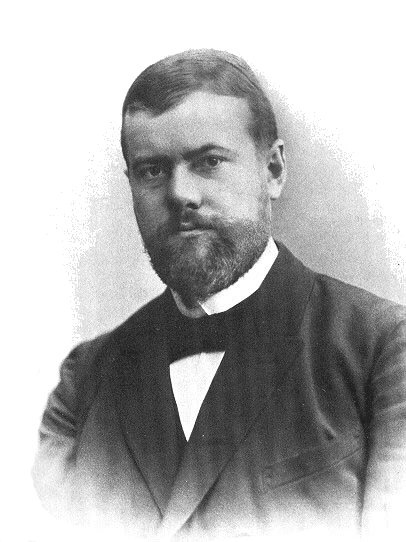Politik als Beruf, S. 66
Politik als Beruf (1919)
Max Weber Berühmte Zitate
Politik als Beruf, S. 4
Politik als Beruf (1919)
Zitate über Leidenschaft von Max Weber
„Denn nichts ist für den Menschen als Menschen etwas wert, was er nicht mit Leidenschaft tun kann.“
2 Vorträge: Wissenschaft als Beruf + Politik als Beruf
Wissenschaft als Beruf, S. 11
Wissenschaft als Beruf (1917–1919)
„[…] nichts ist für den Menschen als Menschen etwas wert, was er nicht mit Leidenschaft tun kann.“
Wissenschaft als Beruf, S. 10
Wissenschaft als Beruf (1917–1919)
Max Weber Zitate und Sprüche
„Denn der radikalste Zweifel ist der Vater der Erkenntnis.“
Der Sinn der »Wertfreiheit« der soziologischen und ökonomischen Wissenschaften. In: Gesammelte Aufsätze zur Wissenschaftslehre, Hrsg. von Johannes Winckelmann, Tübingen <sup>6</sup>1985, S. 540,
Andere Werke
Politik als Beruf, S. 56
Politik als Beruf (1919)
Politik als Beruf, S. 55
Politik als Beruf (1919)
Variante: Die Bergpredigt ist kein Fiaker, den man beliebig halten lassen kann, um nach Befinden ein — und auszusteigen.
Der Sozialismus, Vortrag zur allgemeinen Orientierung von k. u. k. Offizieren in Wien, Phöbus, Wien 1918, S. 17
Andere Werke
Zur Psychophysik der industriellen Arbeit, II. »Uebung«. In: Gesammelte Aufsätze zur Soziologie und Sozialpolitik, Hrsg. von Marianne Weber, Tübingen ²1988, S. 72,
Andere Werke
Politik als Beruf, S. 4
Politik als Beruf (1919)
„Wir haben lieber Leute als Beamte, auf die wir spucken, als eine Beamtenkaste, die auf uns spuckt.“
Weber zitiert die amerikanische vox populi in Bezug auf Europa, Politik als Beruf. München und Leipzig: Duncker & Humblot, 1919, S. 44, zitiert auf weltwoche. ch
Variante: Wir haben lieber Leute als Beamte, auf die wir spucken, als eine Beamtenkaste, die auf uns spuckt.
Die »Objektivität« sozialwissenschaftlicher und sozialpolitischer Erkenntnis. In: Gesammelte Aufsätze zur Wissenschaftslehre, Hrsg. von Johannes Winckelmann, Tübingen <sup>6</sup>1985, S. 150,
Andere Werke
S. 1,
Wirtschaft und Gesellschaft (1922)
S. 122,
Wirtschaft und Gesellschaft (1922)
Politik als Beruf, S. 44
Politik als Beruf (1919)
Wissenschaft als Beruf, S. 10
Wissenschaft als Beruf (1917–1919)
Wissenschaft als Beruf, S. 11
Wissenschaft als Beruf (1917–1919)
Wissenschaft als Beruf, S. 16
Wissenschaft als Beruf (1917–1919)
Max Weber: Zitate auf Englisch
Max Weber, The Nature of Social Action, 1922
Quelle: From Max Weber: Essays in Sociology (1946), p. 154; Essay: "The prestige and power of the “Great Powers."
Quelle: Religion of China (1915), p. 160
Quelle: The Protestant Ethic and the Spirit of Capitalism (1905; 1920), Ch. 3 : Luther's Conception of the Calling
Quelle: The Protestant Ethic and the Spirit of Capitalism (1905; 1920), Ch. 4 : The Religious Foundations of This-Wordly Asceticism
Quelle: Religion of India (1916), p. 20
Max Weber's last words (1920), as quoted in Prophets of Yesterday : Studies in European Culture, 1890-1914 (1961) by Gerhard Masur, p. 201
“Politics means a strong slow drilling of hard boards, with passion and judgment at the same time.”
German: "Die Politik bedeutet ein starkes langsames Bohren von harten Brettern mit Leidenschaft und Augenmaß zugleich."
"Politics as a Vocation" (1919)
Quelle: From Max Weber: Essays in Sociology (1946), p. 124; Essay "Politics as a vocation"
This tendency has not been observed in the same way in the present or the past among Catholics, regardless of whether they were the dominant or dominated stratum or constituted a majority or minority. Therefore the cause of the different behavior must be mainly sought in the enduring inner quality of these religions and not only in their respective historical-political external situations.
Quelle: The Protestant Ethic and the Spirit of Capitalism (1905; 1920), Ch. 1 : Religious Affiliation and Social Stratification
